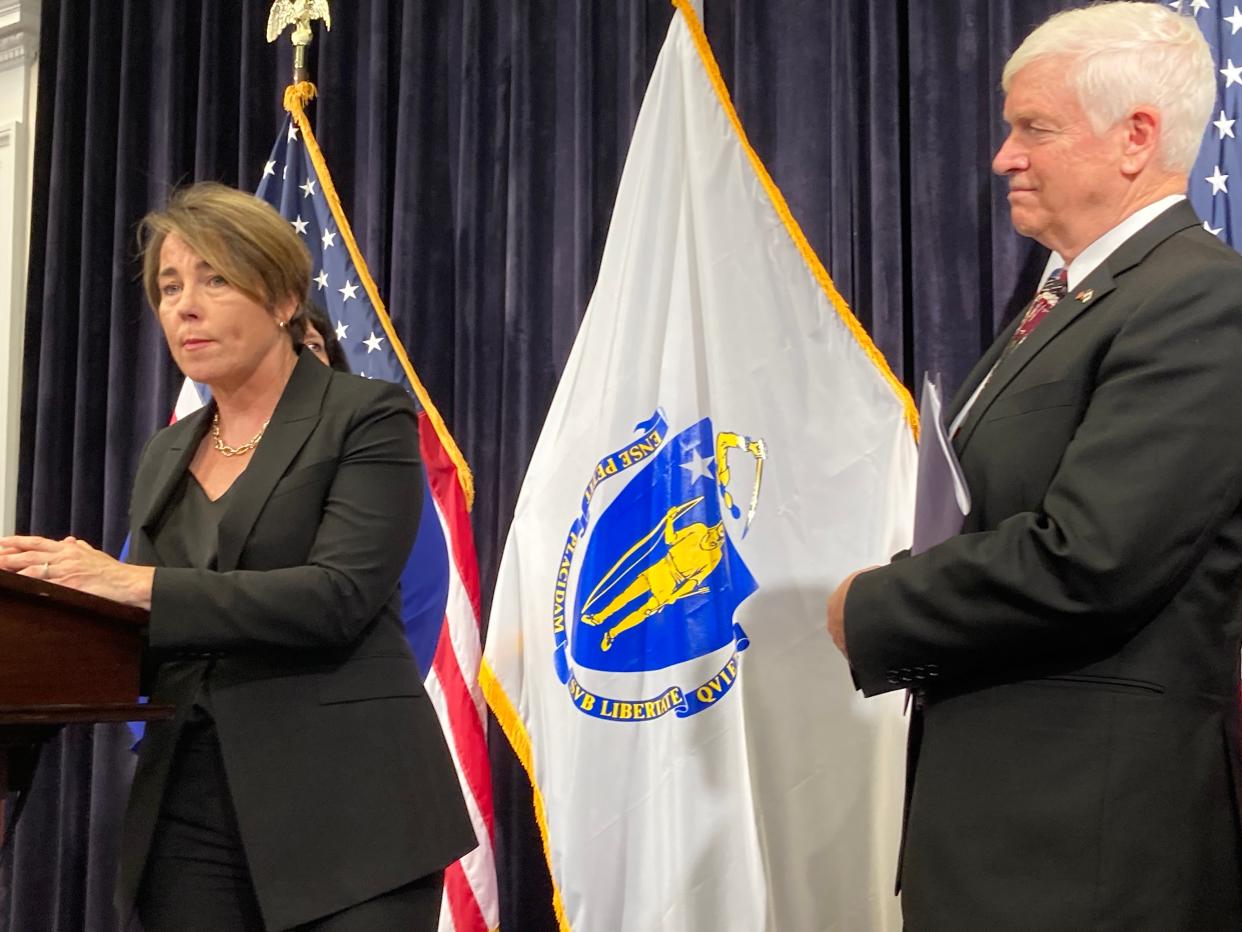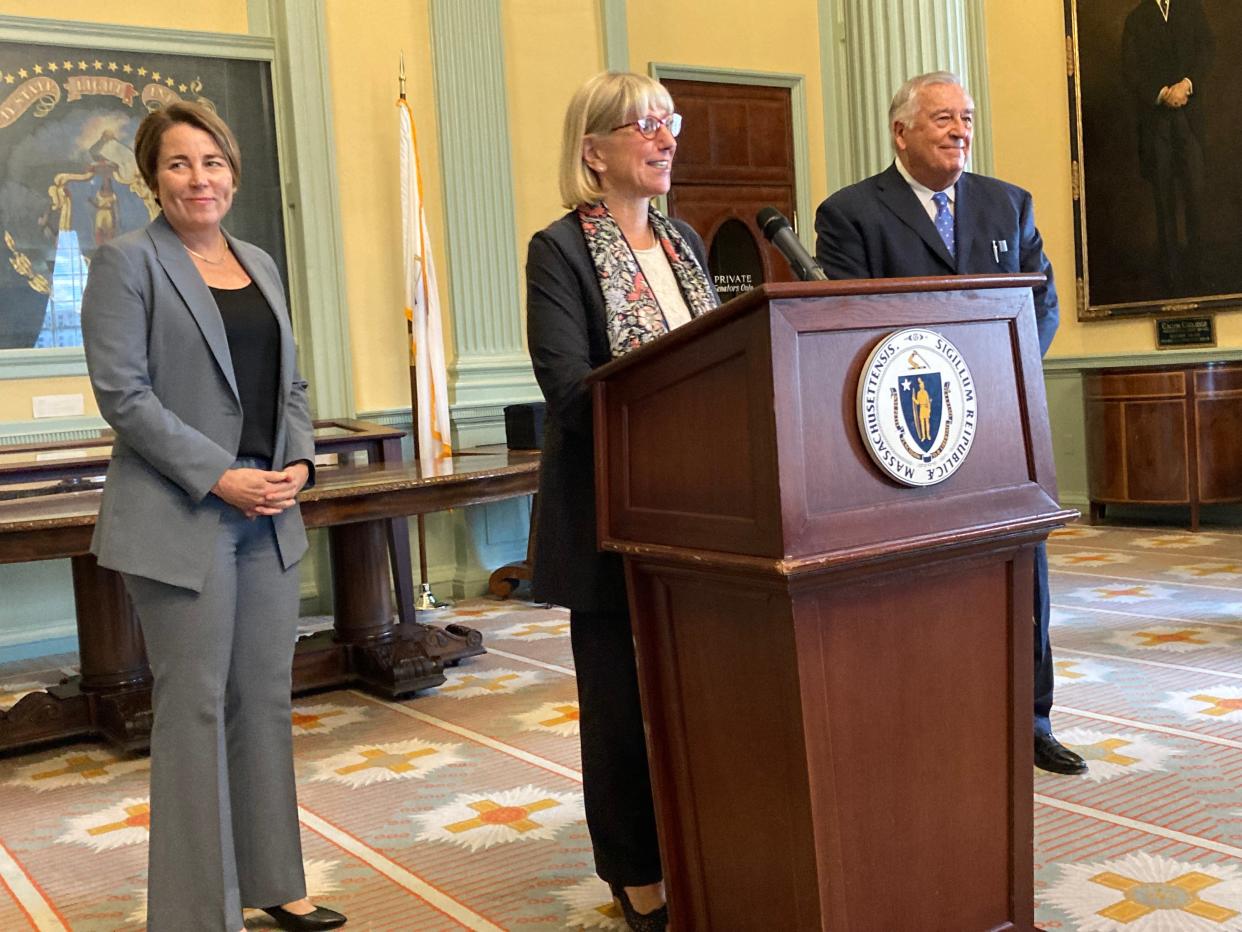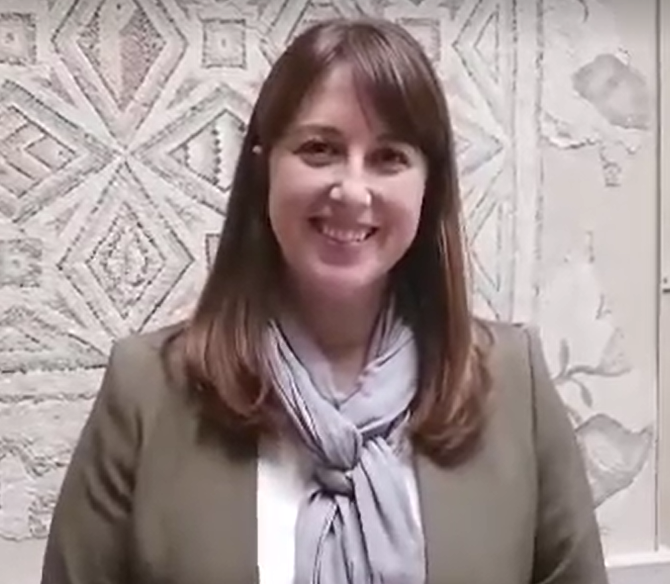Central Mass. legislators frustrated over governor's handling of migrant crisis
BOSTON - Months into the state of emergency declared in August by Gov. Maura Healey, the influx of migrants into Massachusetts has yet to slow, the state’s emergency shelter system is at capacity and legislators are being asked to kick in another $250 million to fund it.
Even as the Healey/Driscoll administration scrambles to put together a coordinated, coherent and centralized response, local legislators are shaking their heads.

Confusing was one legislator’s take on the situation. A lack of a sense of urgency was another’s response.
“There is no clear-cut communication from the administration,” said Sen. Jamie Eldridge, D-Acton. That lack of communication between the administration, legislators and municipal officials was apparent in the governor’s recent appointment of former Mass. National Guard Commander Lt. Gen. L. Scott Rice to direct the state’s response.
Lack of communication, advanced notice at issue
“Many legislators were very surprised that there was no advance notice of the potential changes in policy,” Eldridge said. The progressive legislator said he would be willing to approve the governor’s request for the $250 million if there were improvements to the flow of information and some indication as to just how many migrants will be directed to Massachusetts. He may be one of the only ones.
House Speaker Ronald Mariano, D-Quincy, has said repeatedly that the lack of a framework and the mystery surrounding the number of migrants Massachusetts can expect to accommodate in the coming months has stayed the votes of the Legislature.

While the Biden administration has pledged $1.4 billion to support the states that are hosting migrants, Mariano was quick to point out, somewhat dryly, that the possibility of receiving funds from Washington anytime soon is slim.
“If we’re expecting funding to come out of Washington now, it’s time to go buy a bridge in New York City,” Mariano said. He was referencing the chaos surrounding the election of a new Speaker of the House of Representatives, which was finally accomplished Wednesday.
Eldridge said he has seen more coherence in the Healey/Driscoll administration’s plans recently, referencing the decision to call up the National Guard, to centralize planning and to appoint a coordinator to oversee the state’s response. The Guard will serve as liaison to those shelters where service providers are few in number or totally lacking.
“We need to create a command center, establish clear protocols for decision making and keep cities and towns in the loop,” Eldridge said.

His is one of the districts in Central Massachusetts where many of the incoming families are housed. The commonwealth is sheltering some 7,500 families, roughly 24,000 people across the state. The state has spent $45 million a month since August on the emergency shelter system, according to the administration’s figures.
Amendment to shelter law suggested
“In Southborough, the town stepped up, but there was no communication from the state that the migrants would be housed there until the day after they were settled in,” Eldridge said.
The senator and two colleagues, Robyn Kennedy, D-Worcester, and Michael Moore, D-Millbury, sent the governor a letter in August pledging their support and making a few suggestions. The letter also praised the governor’s decision not to repeal or amend the state’s right-to-shelter law.
Some legislators have suggested the law be amended to limit that right to residents with legal standing in the United States who have been in Massachusetts for at least three years.
That suggestion was made by Rep. Peter Durant, R-Spencer.

“I am pleased that this legislation now has growing bipartisan support,” Durant said. “My legislation is a commonsense approach that will help end Massachusetts’ reputation as a magnet state while keeping the program in place for those who really need that assistance and ensure that our tax dollars that fund the program are used to help our own residents.”
Also critical of the administration is Rep. Joseph McKenna, R-Webster, who took the governor to task for the “utter lack of cooperation and communication with the local communities being called upon to house these migrant families.”
McKenna also criticized the administration’s past practice of dropping (families) “off across the commonwealth with no notice to the host municipality, and certainly with no state resources or support. It was a full month after the migrants arrived in Sutton before the administration even provided a regional liaison contact to legislators. Towns were and still are on their own.”
The Republican legislator did note that the crisis was not of the administration’s making or choosing, but also pointed out that under the Baker/Polito administration the emergency shelter system was at less than half of the numbers currently being housed.
“I am certainly in support of bills that have been filed to modify and update our right-to-shelter law, I believe the only one in the country, McKenna said. “It is necessary that we ensure that those who are in need of assistance and who are legal residents of the commonwealth are not passed over by those who have come illegally in the past six months.”
Complicated issue needs federal response
Rep. Kate Donaghue, D-Westborough, echoed the governor in describing the situation as one that must be resolved by the federal government. “It’s a complicated situation, one that needs a federal response,” Donaghue said.
Healey has repeatedly called on the Biden administration for answers and has recruited the state’s federal delegation to push for more support, from more funding to expediting working papers for the migrants who have already been vetted by the federal government. She noted that once family members can start working, they can move out of the shelters.
As a stopgap measure while the state waits for the federal government to issue working papers, Healey has established two programs. The state has partnered with agencies to assess the job skills of the migrant and match them with jobs. A second program will offer job training.

Last month, the Biden administration sent a team of observers to Massachusetts to assess the situation in the Bay State, and Healey is hoping there will be some relief from their findings. She is asking the government to open a federal shelter in Massachusetts to alleviate the strain on the state’s system. Massachusetts is using hotels and motels, vacant state dwellings and even dorms and common rooms on public colleges and universities to accommodate people.
“This is a difficult situation, I have made an effort to be clear with the public, the state has reached its limit in terms of capacity in structures, personnel and funding,” Healey said Monday. “Massachusetts has done its job; we need federal help.”
Rep. Jon Zlotnik, D-Gardner, is reluctant to approve more funding to ameliorate the situation.

“I think the Legislature should not appropriate more funds until A) a complete picture of what is going to be needed is presented, B) there is a plan for those already in the shelter system, C) there is a plan going forward,” Zlotnik said in a prepared statement. He noted the emergency shelter system has been problematic for years, indicating the issues started with the Baker/Polito administration.
“I think it certainly needs a review with an eye towards sustainability and predictability,” Zlotnik said. While he is not against changes to the right-to-shelter law, he said the bill as written fails to specify how residency would be established. “I think that is the crucial factor if we were to pursue that avenue. The main thing is the governor needs to put forward a comprehensive plan to address the situation.”
The trio of Central Massachusetts senators recommended the administration identify all state lands and buildings for use as impromptu shelters while also expediting the development of much-needed housing. The administration could call housing developers and rental property owners to identify vacancies that could be used by families through the Massachusetts Rental Voucher Program.
“There’s no place to live in Massachusetts,” Eldridge said.
Different communities face different housing issues. Suburban central and rural Massachusetts have aging populations that cannot afford to downsize, and more urban areas lack housing that low-income wage earners can afford. Year-round residents of summer communities are being edged out of their rentals by homeowners who are opting to live and work remotely. Short-term rentals in those resort communities price out the workers needed to service them.
Build affordable housing
Eldridge urged the governor to use the remaining American Rescue Plan Act funds, some $300 million, to kick-start the construction of housing in the state.
“There is a view by some colleagues that if we just produce more housing, somehow, it will create affordable housing,” Eldridge said.
However, while some believe the market forces will drive prices downward, Massachusetts residents are not so confident. Recent polls show overwhelming support for the return of rent control and not just in urban centers, for real estate transfer taxes upon sale of million-dollar properties, and other ways to tackle the high cost of housing, including changes to zoning laws and even the possibility of installing accessory dwelling units, tiny houses placed on land already occupied by a single-family home.
Eldridge was reluctant to assign a grade to the governor and her administration. However, he has felt a lack of urgency on the migrant crisis and multiple other issues facing the Bay State.
His colleague, McKenna in the House, summed it up well: “We have heard for years that there is a housing crisis, and that there is a workforce crisis in nearly every segment, and that there is a wage crisis in the service industries with salary reimbursement rates for direct care and early childhood service providers lagging, and that there is an opioid crisis with overdoses and deaths still at unacceptable rates. These are all crises that have been deferred for lack of funding and resources for years. It is not acceptable that these issues continue to be kicked down the road to cater to illegal immigrants who come to our state because of the generous shelter and benefit systems in place.”
He was not reluctant to grade the governor. “I think that the Healey administration has done a terrible job of managing this crisis,” McKenna said.
This article originally appeared on Telegram & Gazette: Federal solution called for: but Massachusetts needs to get creative
